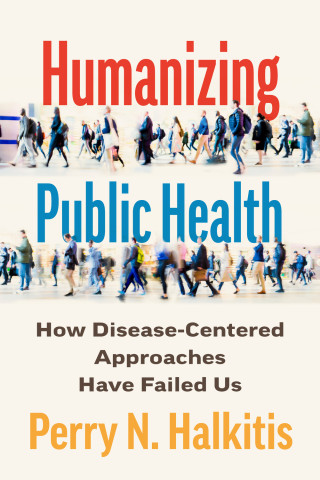
Reviews
A daunting subject viewed through the lens of neuroscience, evolution, and medical history, served to readers as a personal, moving narrative. Chase provides a model of effective science writing.
What Dr. Chase produces is a rare combination of family memoir and accessible explanation of the neuroscience, genetics, and the epidemiology of schizophrenia. I simply love this book.
While schizophrenia may be well known, it is widely misunderstood. Chase has successfully produced a succinct scientific overview of schizophrenia that also gives a touching insight into the lives of those affected by this complex disease.
I would highly recommend this book to anyone with a relative or loved one with schizophrenia, and to any mental health professional who needs to be reminded about the effects of mental illness on the patient and the family.
Schizophrenia is a book written for anyone touched by the disease. Dr. Chase asserts that it is not a scientific text for healthcare professionals; however, in my opinion, the book is informative for them as well... The book is a must-read for anyone who has a loved one suffering from schizophrenia.
Chase notes, in his final reflections, that the shifting social perceptions and acceptance of schizophrenia have improved the situation for sufferers and families alike—a change that will only be bolstered by this sensitive and compassionate read.
The book Schizophrenia: A Brother Finds Answers in Biological Science is a period piece. It is a combination of personal recollections spanning the second half of the 20th century and an extended pedagogical discussion of some of the research on schizophrenia during that period.
It's more than a professor of biology's coverage: it blends his own family story of his brother's life and affliction with a review of the latest scientific literature on the issue, making for a guide especially user-friendly to families struggling with the result of a diagnosis.
I do not know of another book that gives an account of the course of schizophrenia across an entire lifetime. Chase's technique of alternating chapters between the science and the personal to tell the story of his brother's illness uniquely melds two equally important but very different perspectives on this terrible illness. The result is a book that is compelling, heartbreaking, and hopeful all at the same time.
Dr. Chase asks the fundamental questions about schizophrenia and, in exceptionally clear language, explains the technical obstacles to answering them. The chapters about his brother are poignant, often achingly so, making it clear why answers are needed so urgently.
Many scientists and physicians could have written this extraordinarily insightful book, but few choose to share their compassion and anguish for their brothers who have experienced schizophrenia. Ronald Chase describes his efforts to understand an un-understandable brain disease in a way that compels the reader to join him in a plea for more research and less stigma.
Schizophrenia is a physical disorder mainly affecting the brain and profoundly afflicting life as a human being. In this book—a perspective on hope for the future—Ronald Chase elegantly interweaves a subjective family story of his brother’s life with schizophrenia and an objective review of the scientific literature on this condition.
Book Details
Acknowledgments
Prologue
1. Innocence on the Road to Los Angeles (1948)
2. Who Gets Schizophrenia and Why?
3. Dining with Tension (1956)
4. Which Genes Cause Schizophrenia?
5. A Consultation with Dr. Held
Acknowledgments
Prologue
1. Innocence on the Road to Los Angeles (1948)
2. Who Gets Schizophrenia and Why?
3. Dining with Tension (1956)
4. Which Genes Cause Schizophrenia?
5. A Consultation with Dr. Held (1957)
6. Which Aspects of the Environment Cause Schizophrenia?
7. Breakdown in Westwood Village (1958)
8. Why Does Schizophrenia Begin in Late Adolescence?
9. Two State Hospitals (1959–1960)
10. What Are the Treatment Options?
11. A Conversation in a Park (1963)
12. Is Mental Illness in the Mind or in the Brain?
13. The Villa and the Ambassador (1982)
14. Why Is Schizophrenia Stigmatized?
15. Strolling the Boardwalk at Hermosa Beach (1993)
16. Just What Is Schizophrenia, Anyway?
17. Libraries and Literature (1995)
18. When Did Schizophrenia First Appear, and Why Doesn't It Go Away?
19. Jim's Final Days (1998–1999)
20. What Happens to People with Schizophrenia through the Years?
21. Reflections
Epilogue
Notes
Glossary
Suggested Readings
Index






